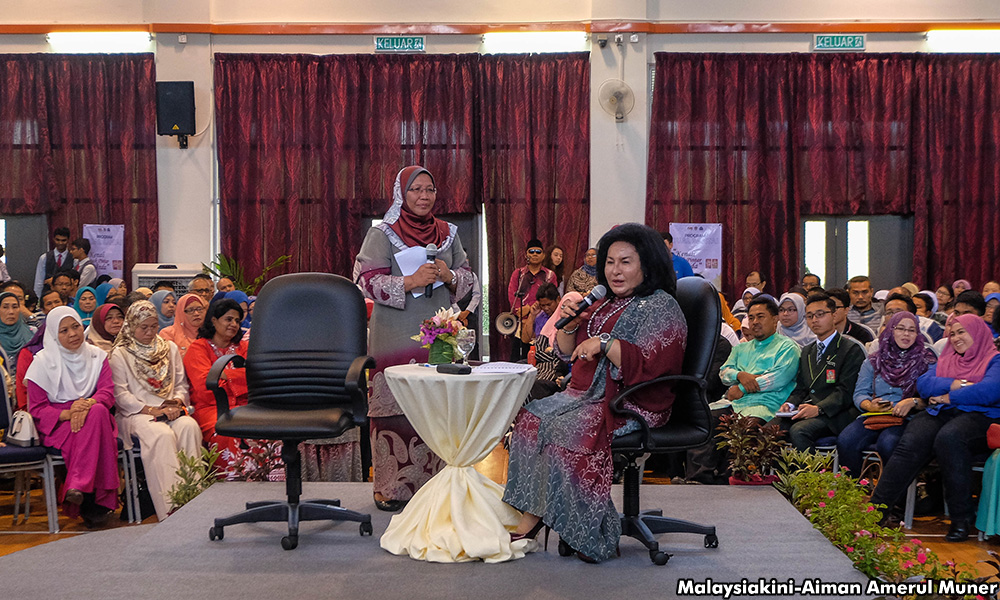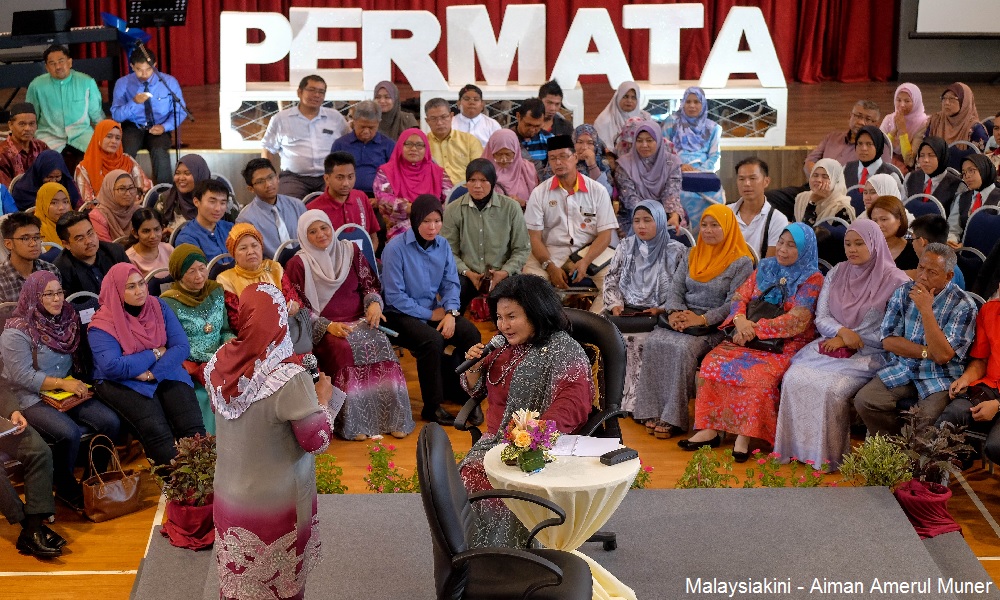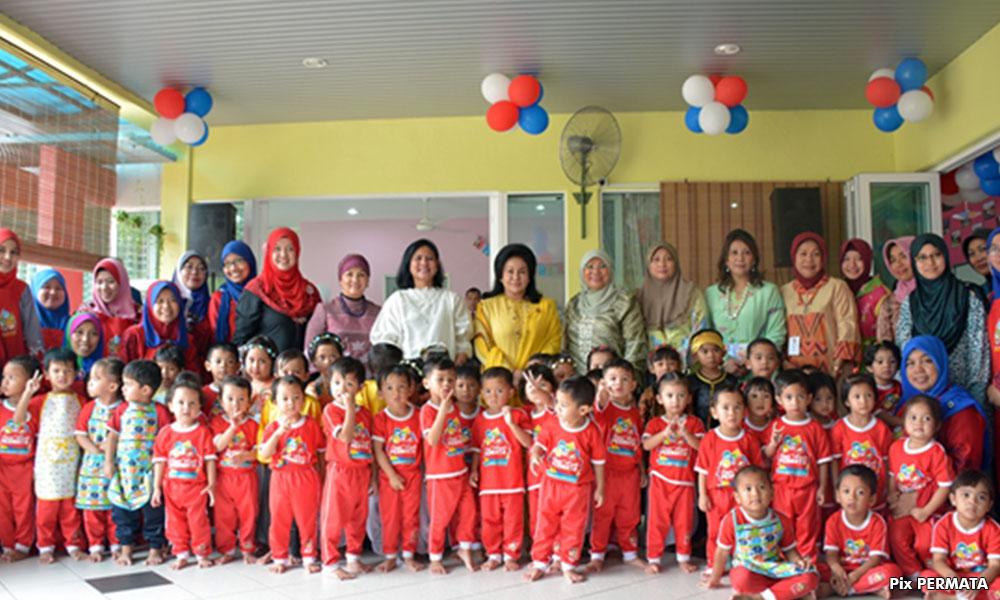
Permata, which means ‘gem’ in Malay, is a programme launched with the aim of uncovering prodigious talents in Malaysia.
While Permata does not appear to have a workable definition of what "genius" constitutes, or should be, not unlike the MacArthur Foundation in United States that gives out the annual "genius" awards, where recipients are allowed to spend up to US$1 million a year to write their books or produce their films, the end goal of Permata appears to be rather run-of-the-mill: students should just get into the top-tiered universities.
But this is what 55,000 students from all over the world tried to do when they tried to be one of the 4,500 elite students to be in the freshman class of Harvard University each year. What makes Permata so different from the methods and pedagogy attempted by the 55,000 students? No one knows, since Permata has never truly measured up.
If anything, Permata confused mere aspiration with an actual plan. Indeed, if more has to be said, Permata wanted all the glitter and the gold, without knowing how to get there; which in turn resulted in questionable programmes like training students to have a Noble Prize mindset. But, seriously, how?
Noble Prize winners are divided into six categories - the promotion of peace, economics, physiology, medicine, chemistry and physics. Research, hard work, persistence and imagination are the stuff of creative breakthroughs. No one knows if the winners had excelled in emotional, intelligence and adversity quotients merely, or better yet, all three.
There are, of course, Nobel prize winners of questionable repute, such as Aung San Suu Kyi, who has stayed silent on the plight of the Rohingya Muslims. In all fairness, perhaps even former US president Barack Obama felt that he didn’t deserve to win it when he matter-a-factly urged an end to nuclear arms, a goal he failed.
Thus, if there were any tangible indicators, Permata just wanted more students in top-tiered universities, such as Harvard, Princeton, Massachusetts Institute of Technology (MIT), Dartmouth, University of Pennsylvania, Yale University, Cornell and Brown University. To the degree permitted, students of Permata were encouraged to apply to University of Cambridge and University of Oxford too; and one would assume, Sorbonne and Sciences Po in Paris as well.
But with the exception of one Permata student at Cornell University, one wonders what more did Permata achieve?
Invariably, this is a cause of great concern, even after Permata has been absorbed into the Education Ministry. Does the Education Ministry know what it has got itself into?
Aiming high
In principle, there is nothing wrong with aiming high. All ambitious students and institutions do the same.
But in ways not unlike 1MDB, Permata too did not have the equivalent of a "business model", It did not know how to operate in the real world. Thus, despite operating out of a swanky facility in Universiti Kebangsaan Malaysia (UKM), with its own swimming pool and dormitory to boot, no one knows what or where the Permata students in Ivy League are. Aside from the one student at Cornell University, are there others?

Thus, if one goes through the registry or logbooks of Permata, one will find numerous trips abroad, often to lobby the presidents and vice-chancellors of these famous colleges and universities to give the alumni of Permata the benefit of the thought that the students of Permata are sufficiently good enough to thrive in these Ivy League settings.
In more ways than one, Permata is not entirely different from the Royal Scholars of Thailand, or the President's Scholars of Singapore, both of which are bent on getting the creme de la creme (best of the best) to study in these world-class universities.
In the case of Royal Scholars of Thailand, the best students were often placed in Exeter or Andover Academy in the US first. These are well-known feeder schools to Ivy League. Almost all their students get into Ivy League universities. Did Permata work with Andover and Exeter? If not, why not?
Permata, however, did not seem to favour this route, nor was it aware of these feeder schools in US. Instead, Permata went knocking on the doors of the Ivy League universities with a huge sense of self-entitlement - that they were backed by the government of Najib Abdul Razak. So what? By 2015, it was well-known throughout the world that the Najib government was at its "kleptocratic worst". By 2017, US attorney-general Jeff Sessions had openly referred to it as such. Why would any major university work with Permata?
Besides, anyone familiar with these prestigious universities will often find a warm and positive reception anyway when one makes a visit to the provost or president's office. This is part of what they do. In fact, it is not difficult to knock on the door of any deans or to invite them over for a talk. You just need to reimburse them accordingly.
Professor Jeffrey Sachs, for example, has lent his name to Sunway University in Malaysia to create the Jeffrey Sachs Institute, albeit having a previous appointment at Harvard University. Sachs, who became the youngest tenured professor in economics at the age of 28, is currently the chair of the Earth Institute in Columbia University too, one of the finest multidisciplinary institutes in the US.
If Jeffrey Sachs can be in Kuala Lumpur, Malaysia, it doesn't stretch the mind one bit to believe that more Ivy League programmes can be in Southeast Asia too, as is the case of the Emeritus Institute in Singapore, which runs a profit-making centre to help students get credentialed with MIT, Columbia and Dartmouth. Bank Negara appears to want to do the same with the MIT Sloan School of Management in Kuala Lumpur.
Thus one wonders why did Permata have to fly to the locations of the Ivy League universities, when in fact the professors can be flown here? Indeed, University of California in Berkeley even has a deputy rector or deputy chancellor in international relations. Berkeley's goal not least is to receive these foreign delegations with the warmth that they deserve, invariably, hoping that these foreign delegations - such as Permata - will send their students to the University of California Berkeley as fully paid students, with no strings attached.

When they do get in, University of California in Berkeley, or any Ivy League institution for that matter, would not turn the admitted students away. After all, the students would probably be funded by Permata all the way, perhaps from BA to MA and finally PhD. Since graduates of Permata are not bonded, they are at not obliged to return to Malaysia to work in the country. Thus, how does Malaysia get its yield in exchange?
Millions wasted
This is where Permata is most mistaken. When foreign institutions receive the delegations with any degree of respect, such courtesy is not tantamount to acknowledging Permata as a peer. Etiquette and courtesy often come with the hope that Permata or the Malaysian government will create more funding to allow more foreign students to study in their midst anyway.
In University of Cambridge, for example, the Cambridge Commonwealth Trust enjoys the confidence of University of Cambridge to handle the scholarships from Gates Foundation, Shell Foundation, and many others. All the funds are consolidated into one trust, to which the scholarships are then handed out to the deserving students from all over the world.
To the degree the scholarships given to the students are not enough, the collegiate system in University of Cambridge will pay the remaining amount. Financially well-endowed colleges like Queens, St Johns Colleges, Clare, Trinity College and Trinity Hall would have no problem in topping up the fees.
In fact, once a person is accepted into Harvard University for a full BA programme, Harvard University has an endowment close to US$37 billion to fund the entire four-year education of the student. As things stand, a Harvard student would have to spend close to US$250,000 (RM999,919) to US$270,000 to finish her or his BA education.
Harvard would have no problem paying for it; not unlike how Muar parliamentarian Syed Saddiq Syed Abdul Rahman was granted a full MA scholarship at University of Oxford, although Harvard is in the US, while Oxford is in the United Kingdom.
However, the puzzle about Permata is this: Why did millions, perhaps, hundreds of millions have to be spent on getting students to study in Ivy League universities, even before they have been properly tested in Malaysia?

Take Harvard X MBA programmes, for example. Unlike before, MBA candidates interested in studying their MBA at Harvard can attempt to do the degree by first taking six online courses at Harvard X MBA. If the students perform well in all six of the Core of Readiness programme (CORE), s/he would be in a better position to do well in an actual MBA programme at Harvard. The cost of the six CORE courses? US$9,000 in all, and less (i.e. US$1,500 per course).
Indeed, if one only chooses to take one Harvard X online course, rather than six online courses in full, then the fees are less. While doing these MBA courses online with Harvard, there is no need to leave their current jobs and countries too - unless they are fully ready, and suited to leaving for the US.
Countries like China, France, United Kingdom, Saudi Arabia, not excluding Israel, have embarked on their own online strategy, in order to work with Harvard X. Since Malaysia wants to host the digital free trade zone (DFTZ), there is no harm to adopt an aggressive online education strategy that amounts to Malaysia X too.
Workers and students who work in DFTZ can either be separately trained by Ali Baba X, or Harvard X in a joint collaboration. When such a programme is introduced, the Malaysian workers in DFTZ would have the advanced management skill sets and data analytics to do well. The 60,000 jobs which DFTZ seeks to produce, for example, would be high-end positions that allow the workers to earn and learn at the same time.
For what it worth, online platforms like Coursera, have begun working with the top state universities in California to provide more online content and courses. Usually the fees do not go higher than US$50, although the online certificates cost a fraction more; usually US$75 to US$100 per course every semester. In the not-too-distant future, the world of education would be fuelled by the use of 3D goggles. The use of chalk and blackboards are no longer the future.
Either way, the problems produced by Permata can be solved with more online content and lectures provided by Ivy League universities. When they do, the fees to be saved can verge in the hundreds of millions of ringgit. If applied across the board, the fees saved can run into billions of ringgit, all of which are what the Education Ministry needs at a time when the national debt and liabilities have hit RM1.09 trillion or US$250.6 billion.
Permata can claim that what it has spent is merely a fraction of a billion. But then a fraction of a billion is still in the hundreds of a million. Why waste, when the new age of digital and 3D learning is increasingly the norm?
PHAR KIM BENG is a Harvard/Cambridge Commonwealth Fellow, a former Monbusho scholar at the University of Tokyo and visiting scholar at Waseda University. - Mkini


No comments:
Post a Comment
Note: Only a member of this blog may post a comment.